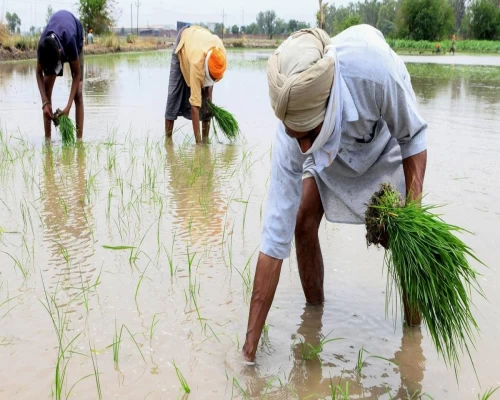
Ever since a complex conflict situation occurred in Ukraine, with Russia annexing parts of Ukraine and military level fighting going on for more than a year, its current and future impacts on international security, specifically on international economy and legal frameworks has been a subject of immense importance and interest. This conflict has created a new challenge for the international community as the actions of Russia were considered to be in violation of international law.
Additionally, the imposition of economic sanctions on Russia has further complicated aspects of international relations as two diametrically opposite views are emerging – on the one hand, sanctions are supposed to have created economic difficulties for Russia, while such impacts have shown no visible impacts on Russian economic health, on the other, leading observers to inconclusive conclusions. While larger dimensions of the ongoing conflict are being assessed by different sections of stakeholders, this article proposes to make an in-depth assessment on two domains – impacts on international legal and economic framework – and tries to suggest a few observations for wider debate.
International Law Governing the Russia-Ukraine Territorial Conflict
The ongoing conflict between Russian and Ukrainian armed forces qualifies as an international armed conflict, which falls under the jurisdiction of international humanitarian treaty law. This body of law includes several important agreements that aim to regulate armed conflicts and safeguard the well-being of those affected. The primary legal frameworks applicable to this situation are the four Geneva Conventions of 1949 and their first additional protocol from 1977, as well as the Hague Conventions of 1907, which govern the methods and means of warfare.
These treaties provide guidelines and protections concerning the treatment of wounded and sick individuals, the rights of prisoners of war, and the safety of civilians during times of war. The four Geneva Conventions of 1949, ratified by numerous countries, establish essential protections for individuals involved in armed conflicts. They cover various aspects, such as the humane treatment of injured combatants on land and at sea, the fair treatment of prisoners of war, and the safeguarding of civilians in war zones. The first additional protocol of 1977, known as Protocol I, supplements and expands upon the provisions outlined in the Geneva Conventions. It focuses on the protection of victims in international armed conflicts and strengthens the legal framework to ensure their well-being. Protocol I provides detailed rules governing the conduct of hostilities, the protection of civilians, and the treatment of individuals who are no longer participating in armed activities.
In addition, the Hague Conventions of 1907 address matters related to the methods and means of warfare. These conventions cover areas such as the protection of civilians during times of war, the prohibition of specific types of weapons, and the responsibilities of occupying powers. Together, these legal instruments, which encompass the Geneva Conventions, Protocol I, and the Hague Conventions, along with customary international humanitarian law, establish a comprehensive framework for regulating the behavior of parties involved in international armed conflicts. The primary objectives of these agreements are to minimize human suffering, protect individual rights, and promote the principles of humanity and compliance with international law during times of war.
According to the international law, nations are required to respect the territorial integrity and sovereignty of other nations. Article 2(4) of the UN Charter prohibits the threat or use of force and calls on all Members to respect the sovereignty, territorial integrity and political independence of other States. The United Nations has also recognized the sovereignty of Ukraine over the peninsula of Crimea. However, Russia's actions were in direct violation of international law. The annexation of Crimea in 2014violated the territorial integrity of Ukraine along with the principle of non-interference in the internal affairs of other countries.
The involvement of the United Nations (UN) has been crucial in addressing the conflict. The UN General Assembly has adopted a resolution that reasserts Ukraine's territorial integrity and urges an end to Russia's annexation of Crimea. Additionally, the International Court of Justice (ICJ) was established by the United Nations to resolve disputes between countries. In this context, Ukraine has filed a case against Russia in the ICJ, alleging violations of various international laws. As a result, the international community has demonstrated a firm stance against Russia's actions.
Although Putin's claims that Ukraine was committing "genocide" against Russians in Donetsk and Luhansk were a thinly veiled attempt to use the language of international law to justify Russia's use of force, they are also unsupported by the facts and would not, in any case, give Russia the right to invade Ukraine. Genocide is defined by the Genocide Convention as a set of deliberate acts intended to completely or partially wipe out a national, ethnic, racial, or religious group. There is no proof that Ukraine engaged in any of the measures listed, and there is absolutely no proof that any group in eastern Ukraine was intended to be completely or partially destroyed. Regardless of whether the Ukrainian government had violated the human rights of Russians in eastern Ukraine, neither the Genocide Convention nor the UN Charter permit convention parties or UN member states to employ force to stop acts of genocide or significant human rights violations.
Furthermore, there is no legal or factual basis for President Vladimir Putin's and other Russian leaders' assertion that their country's use of force is permitted by Article 51 of the UN Charter. According to Article 51, "nothing in the present charter shall impair the inherent right of individual or collective self-defense if an armed attack occurs against a member of the United Nations." Ukraine, however, made no armed threats or attacks against Russia or any other UN member state. Even if Russia could prove that Ukraine had attacked or planned to attack Russians in the Ukrainian territories of Donetsk and Luhansk, such action in collective self-defense would not be permitted under Article 51 because Donetsk and Luhansk are not UN member states. Despite their alleged independence from Ukraine and Russia's recognition of them as independent states, they do not even meet the legal requirements to be considered states under international law.
Economic Sanctions Imposed on Russia
After the crisis in Ukraine began, several countries have imposed economic sanctions on Russia to punish it for its actions in Ukraine. The sanctions have targeted specific sectors of the Russian economy, including financial services, energy, and defense. Primary objectives of these sanctions have been to put economic pressure on Russia to withdraw its forces from Ukraine and to adhere to international law.
US Economic Sanctions
The United States has taken steps to limit Russia's ability to secure funds through sovereign debt. Starting from April 2021, the Office of Foreign Assets Control (OFAC) implemented measures that restrict U.S. financial institutions from extending loans to or purchasing debt from certain major Russian institutions. These measures, known as Directive 1 under Executive Order 14024, have been in place for some time. However, OFAC recently revised Directive 1A, further tightening restrictions by prohibiting U.S. financial institutions from engaging in the secondary market for bonds issued by Russia's central bank, National Wealth Fund, or Ministry of Finance. Additionally, OFAC introduced a new Directive 3 that imposes similar limitations on the purchase of long-term debt or equity issued by several other major Russian financial institutions and companies.
Additionally, as part of a joint statement with international partners, the White House announced in February 2022 plans to work with allies to remove select Russian banks from the SWIFT interbank messaging system. This action, requested by Ukraine, is primarily being implemented by the European Union as SWIFT is regulated in Belgium.
EU Economic Sanctions
The European Union (EU) has taken significant actions in response to the conflict, including the imposition of financial sanctions on Russian banks and measures targeting Russia's central bank. In an effort to curtail President Putin's use of financial resources, the EU has decided to levy financial sanctions on selected Russian banks. Additionally, the EU announced plans to remove these banks from the SWIFT interbank messaging system, aiming to restrict their ability to engage in transactions with other international financial institutions
The EU also enacted legislation specifically directed at Russia's central bank. This legislation prohibits any transactions with the central bank or its representatives and freezes the reserves held within the EU. The objective of these measures, as stated in a February 26 announcement, is to prevent the Russian Central Bank from utilizing its international reserves in ways that would undermine the effectiveness of the EU's sanctions.
Notably, it's important to mention that these measures do not freeze the assets of Russia's three largest banks, namely Sberbank, VTB, and Gazprombank. By implementing these financial sanctions and measures, the EU aims to limit the financial capabilities of Russian banks and restrict the deployment of international reserves by Russia's central bank. These actions are part of the EU's broader strategy to exert pressure and mitigate the impact of the conflict.
Australian Sanctions
In response to the conflict, the Australian government has introduced a range of measures and expressed its commitment to coordinate efforts with the United States and other allied countries. These actions include working towards the removal of Russian banks from the SWIFT system, imposing restrictions on Russia's central bank, addressing concerns regarding "golden passports," and establishing a transatlantic sanctions task force. Additionally, Australia has taken specific steps by imposing sanctions on 13 Belarusian individuals and entities, among them Belarus's Minister of Defense Viktor Khrenin. These individuals and entities are accused of enabling and supporting Putin's aggressive actions by allowing Russia to launch attacks against Ukraine from Belarusian territory. The Australian government's firm stance and collaborative approach demonstrate its dedication to working alongside international partners to comprehensively address the ongoing conflict.
Impact of Sanctions on Russia
Various sanctions imposed on Russia by major countries, mostly from the West, have only managed to scratch the surface and have not achieved their desired impact. They have not done much to halt the ongoing Russian juggernaut that has had a catastrophic effect upon Ukraine. According to CFR President Richard Haass, “While Western-led sanctions may be eroding Russia’s economic base, they have not come close to persuading Putin to reverse his policy”. The International Monetary Fund has recently predicted a growth of 0.3% in Russia’s GDP in 2023. However, the Russian economy has also taken a hit across numerous industries. In 2022, both the World Bank and the IMF projected a significant decline in Russia's trade in goods and services. For 2023, the World Bank forecasts an increase in imports compared to 2022, while the IMF suggests that exports will either remain almost at the same level or experience a further drop. Interestingly, counter to what the Western institutions have predicted, a report from the Russian Academy of Sciences has labelled the 0.4% fall in GDP as “relatively favourable”.
The financial sanctions further weaken Russia’s ability to provide itself monetary support in the ongoing tussle, with around €300 billion of Russian Central Bank reserves being blocked. Speaking of the ongoing tussle, Russia’s military aviation program has been cut off from resupply provided by global aviation trade. When sanctions were tightened in 2022, there were significant shocks to both the domestic production of various non-durables and the import of consumer products. Substitutes may usually be generated or discovered after a time of adjustment, whereas the physical capital left behind by foreign businesses leaving Russia is sold off to domestic buyers at a significant loss. Large market spaces that were previously dominated by Western enterprises are now open as a result of this significant capital transfer from foreign to Russian businesses. It is still debatable as to whether impacts of heavy sanctions on Russia have been felt on the ground as Russian economy may be showing signs of weaknesses, but larger restructuring of Russian economic assets, as explained above, and alternative paths for exports of cheap oil or sale of assets, could stabilize losses in due course of time as subsequent descriptions show.
How Russia Has Been Dealing with Such Sanctions
Amidst sanctions, Russia has responded by expanding the list of countries considered to have engaged in "hostile" actions against them. Although the criteria for defining such actions remain ambiguous, this classification now seems to be the primary determinant of trade relations and foreign economic policies, surpassing practical economic considerations. Consequently, Moscow has strengthened its alliances with various nations, including Iran, Turkey, the United Arab Emirates, African countries, and Myanmar. Notably, Russian companies have even joined an infrastructure consortium established by the Taliban in Afghanistan. The economic ties between Moscow and its primary remaining ally, Beijing, are exhibiting characteristics of growing interdependence. According to Chinese customs statistics, trade between the two nations surged by approximately 30%, reaching an all-time high of $190 billion in 2022. The majority of Russia's electronics and semiconductors come from Chinese manufacturers despite Western prohibitions on the import of semiconductors and microchips. Smaller Chinese businesses are constantly entering the Russian market, despite the fact that industry giants like Huawei may be closing down their operations there out of worry for their overall business. Yuan payments for Russian exports and imports have increased significantly during the past two years as well.
At first, sanctions did a fantastic job of limiting Russian access to important imports, like components for manufacturing. Despite the initial shock, Russia swiftly changed course and started importing more products from countries like Turkey, China, and Belarus that are not a part of the sanctions regime. In summary, Russia has been barred from a lot of markets when it comes to importing essential resources, but it has subsequently discovered alternative markets to fulfil many of its demands.
The Central Bank of Russia, which developed and implemented the "Fortress Russia" policy to safeguard the Russian financial system, has erected the most effective defence. Early on, the system did suffer greatly as a result of considerably more severe sanctions against the assets of Russia's central bank, which resulted in a 40% reduction in bank reserves. The system did, however, recover thanks to prudent management, and the bank still has a sizable amount of foreign currency on hand — up to $300 billion — in case it needs to intervene in the currency and debt markets. Additionally, despite losing access to the SWIFT financial transfer system, Russian banks still appear to be able to get the funds they require to function.
Russian export bans have met with even less success. While several nations have ceased purchasing specific products from Russia, the supply of essential commodities has mostly continued unabated. And Russia has benefited from the raging inflation in this regard: According to Bruegel, rising prices have caused Russia's export revenue to increase by more than 40% to around $120 billion year-to-date and is projected to continue to do so through the end of the year rather than decline. Natural gas, which unlike coal, oil, and other petroleum goods has not been sanctioned and is still in great demand throughout Europe, makes the largest contribution to this.
Conclusion
The Russia-Ukraine territorial conflict and the economic sanctions imposed on Russia is a complex issue that has significant implications for international law and the global economy. The annexation of Crimea and the support of separatist movements in eastern Ukraine constitute violations of international law, and the international community has taken a strong stance against Russia's actions. The imposition of economic sanctions on Russia is a measure intended to pressure it to withdraw its forces from Ukraine and to comply with international law. The situation is ongoing, and it will be essential to monitor any further developments in the future. On the flip side, Russian assertion on military fronts as well as its determined efforts to repair its economic might through alternate routes of trade and transactions still seem to bring in results for Russia. If this trend continues, especially in the economic and trade domains, much efforts from the West and other countries opposed to Russian action could necessitate more stringent actions. At the moment, the jury is still out on which side would eventually win.
Akshat is a Second Year student at National Law University, Jodhpur. He did this paper under the supervision of international security expert Deba R Mohanty, Advisory Board Member, Bureaucrats India


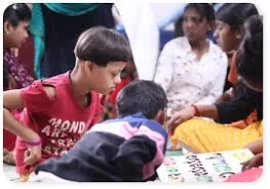
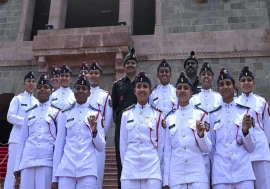
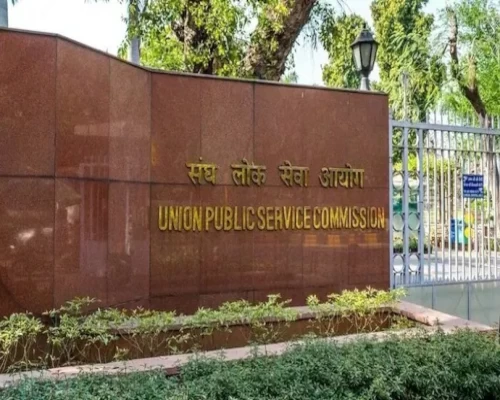
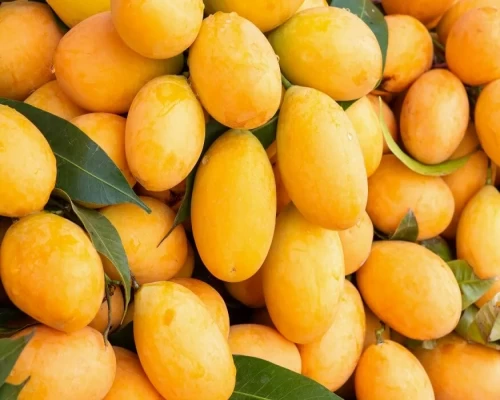

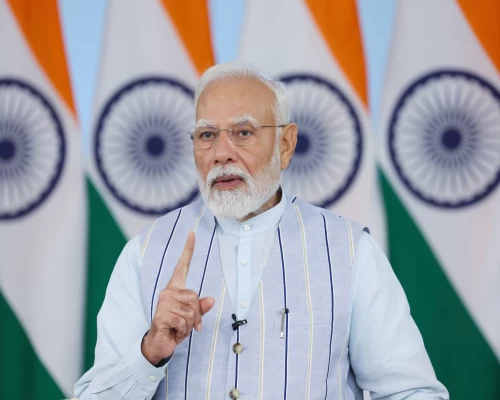
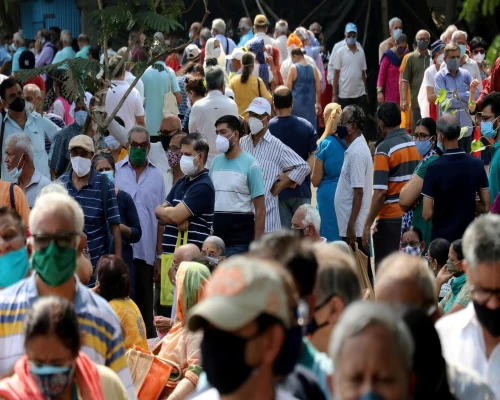
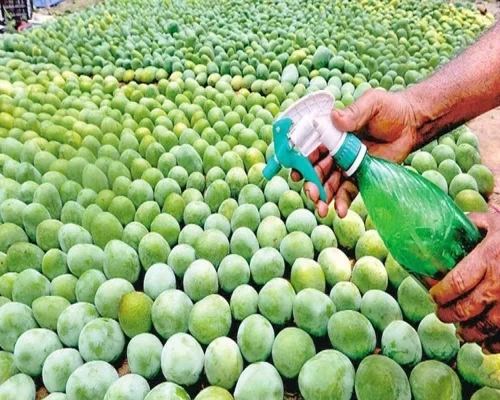
 (13)_500_x_400.webp)
